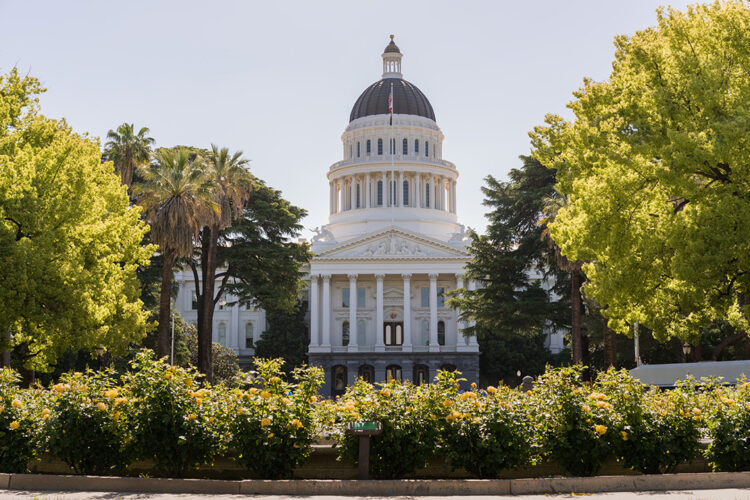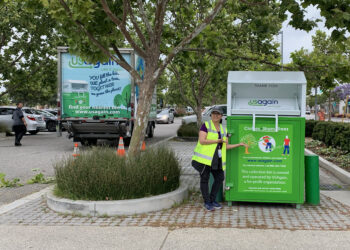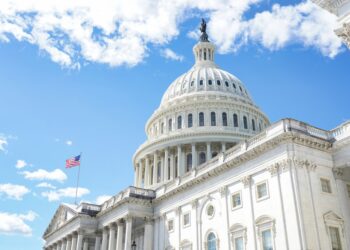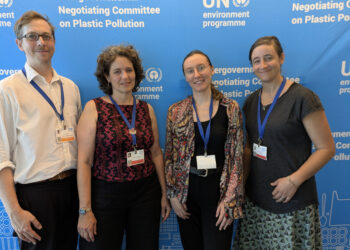A bill that would require 100 percent post-consumer recycled plastic to be used in beverage containers by 2035 is gaining traction in America’s most populous state.
Under Assembly Bill 792, beverage containers would be subject to phased-in recycled plastic mandates, ultimately leading to 100 percent recycled plastic required in each container. The legislation was introduced in late February by Philip Ting, a Democrat in the California Assembly who represents a district that includes much of San Francisco.
By 2021, beverage containers would be made with at least 25 percent post-consumer recycled plastic. That would increase to 50 percent in 2025, 75 percent in 2030 and 100 percent by 2035.
The requirement would only cover bottles included in the California Redemption Value (CRV) system and would assign a single percentage for a company that takes into account usage across the business’s entire portfolio of covered products.
Companies not in compliance would pay a per-container fine that would increase based on how little recycled plastic the manufacturer is using, compared with how much is required.
Currently, relatively few bottlers use recycled plastic in California. Out of 45 companies that reported using plastic in beverage container production last year, 13 said they used recycled resin.
The bill passed out of the Assembly’s Natural Resources Committee this month and now goes to the chamber’s Committee on Appropriations. This bill is similar to a 2018 senate bill that failed to pass.
Necessary or unrealistic?
A range of interests showed up to the Natural Resources Committee hearing this month and laid out cases for and against recycled content mandates, as well as the aggressive targets and time frame pushed by the legislation.
Rich Costa, director of procurement and sustainability at CarbonLite, a bottle-to-bottle PET recycling operation, supported the mandate. He said his company’s sector faces economic challenges on several fronts. Ensuring an end market for recycled PET (RPET) would go a long way to bolster the industry.
“We need ongoing guarantee from the bottling industry to secure capital investments for future growth expansions within this state,” Costa said, “and without it we could lose the greatest success story we have in California recycling.”
“Unfortunately the cost associated with recycling infrastructure in this state has no bearing on domestic or international virgin pricing, at all,” he added. “It puts our industry in a no-win situation: take orders at a loss and hope virgin resin goes up at some point, or shut down a $100 million plant.”
Mark Murray of Californians Against Waste pointed to California’s history of mandating recycled content in various industries, noting the minimum recycled content required in newsprint and glass containers. Particularly in the case of glass, he said, the recycled content mandate spurred an industry in the state that ultimately outpaced the requirements. AB 792 could have a similar effect for the PET reclamation industry, he said.
Niagara Bottling and Nestle Waters, two of the largest bottling companies in California, both opposed the bill. Representatives from those companies pointed out that they buy substantial amounts of RPET in the state, but that they feel the bill as unfeasible in its current form.
The American Beverage Association (ABA) came out opposed to the bill as written, although the group voiced support for using recycled plastic. The group expressed concern with the substantial target figures outlined in the law.
Fredericka McGee from ABA noted the collection rate is less than 100 percent, hampering complete reutilization of bottle PET from the get-go. Meanwhile, of the collected material, some is contaminated.
“You’re never going to get to a 75 percent or 100 percent rate turning around into another bottle,” she said.
Several opponents suggested lengthening the phase-in timeline or reducing the percentage requirements.
But Paula Treat, a lobbyist representing plastics reclaimers throughout California, offered a stark rebuttal.
If demand doesn’t increase, she said, “we won’t be in business.”
Photo credit: Steve Heap/Shutterstock































